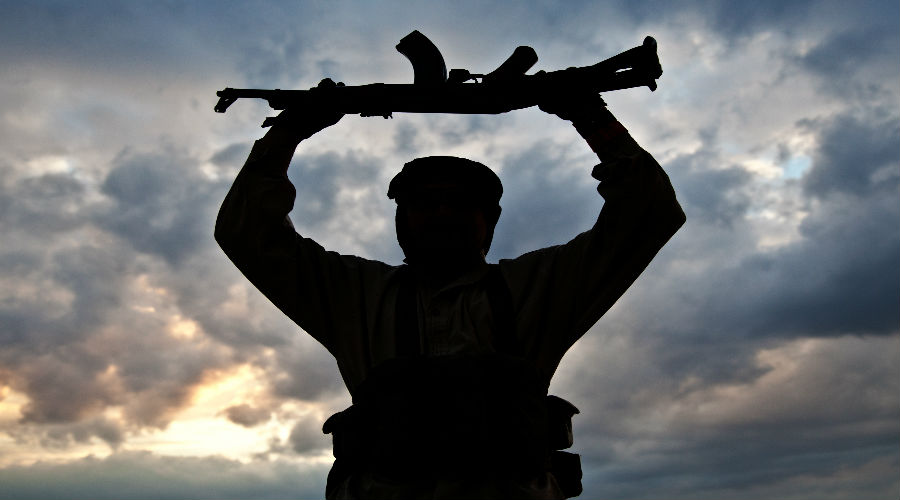The Syrian Democratic Forces (SDF) liberated Raqqa City from ISIS on October 17, 2017, four years after the terror group declared the city its de facto capital for its self-proclaimed caliphate. In its offensive launched on June 6, 2017, the US-backed militia wrested control of most towns and villages in the Raqqa Governorate from the militants after ISIS’ local elements were allowed to leave the city along with a large number of civilians following an arrangement brokered by the Raqqa Civil Council and local tribal elders.
The development is undoubtedly of special significance especially because its powerful implications will impact the cohesion of the organization and even contribute towards its fragmentation and demise in the coming period. Moreover, ISIS’ defeat in Raqqa will impose more pressure on its foreign fighters. Conflicting reports came out as to whether these fighters left Raqqa with civilians and local fighters, stayed or were eliminated.
The reports had it that the SDF continues to search for sleeper cells that foreign fighters might have formed over the past period. Some of these foreigners and their families are still holed up in the city and refuse to surrender to the SDF although they have limited options for dealing with the recent developments on the ground. Unlike local fighters who stayed in the Iraqi city of Mosul after it was liberated on June 10, 2017, those who chose not to leave Raqqa are searching for various alternatives as they cannot integrate easily with the city’s social components.
Reports, citing statements from local officials, emerged claiming that some foreign fighters have been allowed to leave Raqaa as part of a brokered agreement. However, the Raqqa Civil Council which includes tribal representatives announced, on 15 October, said that all 275 fighters who surrendered are Syrians, and that non-Syrian militants were not part of the deal and cannot be forgiven.
On the same day, Colonel Ryan Dillon, a spokesman for the US-led Coalition against ISIS said that coalition was very adamant about not allowing foreign fighters to leave the city. This indicates that international powers involved in the war on ISIS have a special interest in the issue because it had imposed direct consequences on their security after terrorist attacks hit Western capitals such as Paris, Brussels and London. The development would also contribute towards determining which options are left for foreign fighters who are still holed up in Raqqa.
Distinct Characteristics
Some ISIS’ foreign fighters played prominent military, organizational and administrative roles over the past years, after they gained the top leaders’ trust by their keen commitment to the group’s ideology and organizational rules, ability to carry out non-traditional terrorist attacks such as inghimasi raids on which ISIS relied heavily inside the region and beyond. A large number of those foreign fighters gained their extensive experience in armed conflicts in their home countries such as Chechnya and Southeast Asian countries. Moreover, some have a criminal past that the group tried to utilize in terrorist attacks in areas captured recently.
Additionally, several reports note that because of their strong commitment to ISIS’ extremist ideology and guidance, some of these fighters refused to be part of that brokered agreement that facilitated the evacuation of local fighters and civilians they used as human shields to secure their way out of Raqqa.
Limited Options
The SDF’s wants to complete the liberation of Raqqa as soon as possible and take advantage of ISIS’ waning power following a string of defeats in several areas. Accordingly, of the potential paths that ISIS foreign fighters might take the following stand out:
1- They might choose to continue to take part in armed confrontations. Because they attach special importance to ISIS’ main stronghold and capital, some fighters would rather choose to stay in Raqqa City and even continue to fight the SDF to avoid being taken captive.
2- They might flee the city to other areas including those where the group continue to have influence, especially because some of them have not joined ISIS, not because of its ideology, but because they seek to avoid being killed or be taken captive. However, this group might face difficulties because of the SDF continuous siege of the city.
3- They might surrender to the SDF, especially after this militia managed to take control of most of the governorate. The Syrian Observatory for Human Rights noted that a group of 130-150 foreign fighters, including Europeans, had turned themselves in before the end of the battle in Raqqa. Several reports note that the SDF is likely to initiate contacts with their home countries to discuss available mechanisms to prosecute them.
Finally, this issue appears to receive special attention from all powers involved in combating terrorism due, in particular, to their great interest in dealing with potential consequences of ISIS’ defeats in both Mosul and Raqqa where the rising phenomenon of returning foreign fighters from conflict zones poses direct threats to their security and stability.


